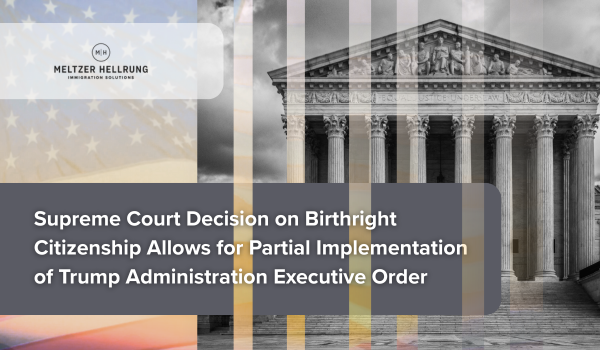On January 20, 2025, President Trump issued an Executive Order titled “Securing Our Borders.” A key provision of the order “terminates all categorical parole programs that are contrary to the policies of the United States.” The impacted programs include:
- Uniting for Ukraine (U4U)
- Operations Allies Welcome (OAW)
- Family Reunification Parole (FRP)
- Cubans, Haitians, Nicaraguans, and Venezuelans (CHNV)
- Safe Mobility Office (SMO)
- Central American Minor (CAM)
Meltzer Hellrung correctly predicted this action prior to the start of the administration.
Impact:
The DHS directive halts the review and adjudication of both initial and renewal parole applications under the impacted humanitarian parole programs. A DHS statement noted that this order “will return the humanitarian parole program to its original purpose of looking at migrants on a case-by-case basis.”
Customs and Border Patrol (CBP) confirmed that the executive order does not apply to foreign nationals arriving with a valid Form I-512 (advance parole) or being processed for Significant Public Benefit Parole in coordination with federal law enforcement partners.
What to Know:
- Individuals granted parole under one of these programs who are outside the US will not be able to enter the US
- Individuals in the US on an impacted humanitarian parole should avoid international travel, even with advance parole or similar travel authorization and contact a Meltzer Hellrung attorney to discuss options to remain in the US.
- Employees on H or L visas seeking to travel on advance parole should consider delaying travel or attending visa stamping prior to returning to the US and seek admission in H or L status to avoid additional scrutiny or delays during CBP processing.
For more information and tailored guidance please speak to your Meltzer Hellrung attorney.


